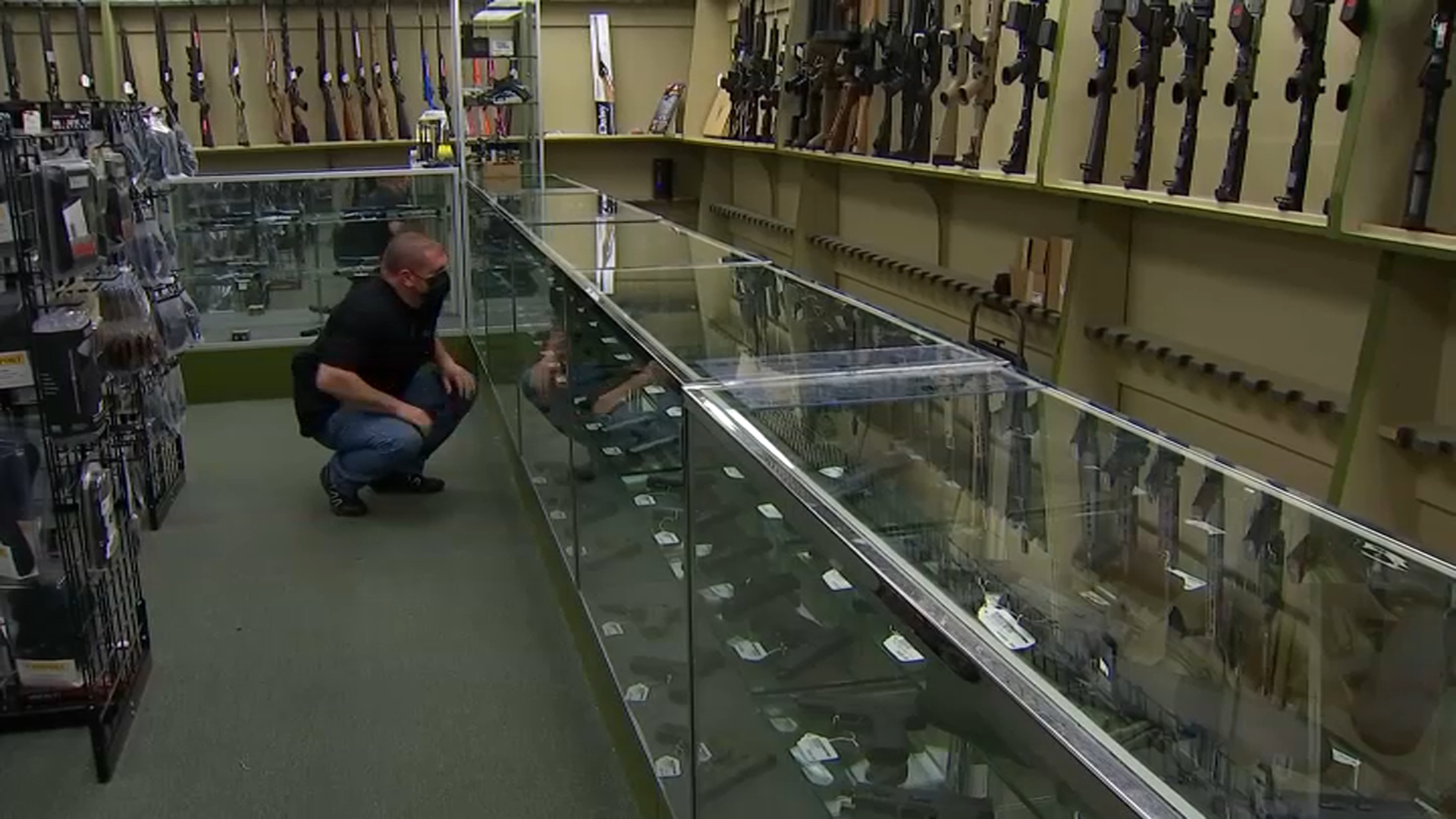Though first responders risk their lives by fighting fires and crime every day, an investigation by the News4 I-Team found thousands of public safety personnel in the D.C. region may be risking their safety in another way: by declining to get the COVID-19 vaccine.
The I-Team found not only are many police, fire and emergency response agencies grappling with how and whether to urge their members to get vaccinated; many are also operating with an incomplete picture of who has received the shot.
The I-Team requested vaccination data from nearly two dozen police and fire departments in D.C., Maryland and Virginia. It found each is tracking the vaccination status of their force differently, if at all.
Nearly half of 22 departments said they’re not tracking vaccinations, with some citing privacy concerns and noting vaccines are voluntary.
Eleven departments provided vaccination numbers to the I-Team, acknowledging the actual figures could be higher. Of those, data show about 60 percent of those firefighters, police officers and paramedics have been vaccinated. Another roughly 40 percent have either not been vaccinated or not reported it to their departments.
“We want every employee to get the vaccine, whether or not they've had the virus,” said D.C. Fire Chief John Donnelly, noting there could be exceptions for those with certain medical conditions. “We know that a lot of people have gotten sick just because they came to work.”
He said his department has been keeping track of everyone’s vaccination status. So far, more than half of his members — about 1,100 — have received the vaccine. He said they’re working with another 900 to understand their reluctance.
Donnelly said his department mirrors the general population in how members have approached the vaccine. While some first responders were among the first to sign up, others have voiced concerns the vaccines are too new, haven’t been adequately tested or could result in unwanted side effects. He said he’s even heard the farfetched concern the vaccine will enable the government to track people.
The vaccinated population in D.C. may be overestimated in this map because some non-residents who work in D.C. are included in the totals.
“We're mixing up a lot of politics and a lot of science here, and that's really disappointing,” he said.
But Donnelly, who said he had COVID-19 early in the pandemic, said the proof of the vaccines’ efficacy is clear. Since he and his staff began getting vaccinated in December, the number of his members getting COVID-19 has steadily dropped, and none who has been vaccinated has fallen ill.
His department launched a robust effort to reach out to the holdouts. They’ve posted video testimonials from fellow firefighters who changed their mind and received the vaccine, and they also have a team of medical professionals who privately reach out to each firefighter or staffer who hasn’t been vaccinated.
Dr. Robert Holman, the medical director for D.C. Fire and EMS, is leading that effort. He said his team is making multiple calls to members to understand their reluctance and provide them with information.
"I'm really optimistic that we can convince people, but I think a strong argument could be made that there's a case for mandating vaccines in this setting,” Holman said, adding many agencies are grappling with whether to require a vaccine that hasn’t yet received full FDA approval.
He said while the department would prefer 100 percent of its members to be vaccinated, they hope for at least 90 percent through this effort. Because while first responders wear protective gear when out in the community, he’s concerned about communal spread that happens inside a fire station’s close quarters.
“There are occasions when they're eating together or sleeping in the bunk house where they might be exposed to one another,” he said. “And, of course, we're concerned about their community exposure when they're off the job.”
Prince George’s County Fire Chief Tiffany Green said her department is also launching an educational campaign by surveying members about whether they’ve been vaccinated, and if not, why not.
The survey will “tell us why they're not getting vaccinated or what the hesitancy is,” Green said. “Then, if there's an educational component, we'll be able to put that information back out to the department."
Green said at least half of her staff is vaccinated, because the fire station scheduled those shots for them earlier this year. But she’s less clear if others have since been vaccinated elsewhere.
Of the public safety departments surveyed by the I-Team, the Arlington County Fire Department has the most vaccinated, with 82 percent of its roughly 360 employees receiving the shot. Alexandria’s fire department, Frederick County, Maryland’s fire department and Montgomery County police are close behind, reporting about 70 percent of their members vaccinated.
In D.C., nearly 60 percent of Metropolitan Police Department members have reported being vaccinated, a spokeswoman told the I-Team, adding, “We have pushed out messaging from all levels of leadership and reminded members of the opportunity to be vaccinated.”
The I-Team found little consistency, however, in how each county handles the vaccination question. For instance, while Montgomery County police officials are tracking, the county’s fire department isn’t. Similarly, while Arlington County fire is keeping tabs, its police department isn’t.
Dale City Volunteer Fire Department Assistant Chief Jeremy McPike said vaccine hesitancy was common when firefighters were first eligible, but he’s seeing that start to change.
“They sort of took a wait-and-see approach to make sure there's no unknown side effects,” he said. “As that sort of anxiety started to wane a little bit, members started to sign up and crew members started to get the shot.”
He said COVID-19 ravaged many public safety teams, noting his department had entire companies out of service for days on end last year because of the spreading illness.
And the risk is still there, he said.
"The crews still run COVID cases every day,” he said. “They're still very much in the community."
Though his department isn’t formally keeping track of who has been vaccinated, McPike, who also is a Virginia state senator, said he would support it as long as it doesn’t violate laws protecting improper disclosure of medical information.
“I think the right thing is to both encourage and track ... to understand what the workforce looks like, especially when we have folks that are responding to the community,” he said.
Now, whether a first responder refuses the vaccine could impact his or her benefits.
Virginia Senate Majority Leader Dick Saslaw, a Fairfax Democrat, championed a bill this year that makes it easier for first responders to receive workman’s compensation if they contract COVID-19 by presuming they got it on the job.
But he told the I-Team lawmakers approved the legislation with the belief first responders would want the vaccine.
"If the vaccine is offered to them and they turn it down, they should not be eligible for workman's comp under that bill,” Saslaw said.
He said he wants to amend the measure in next year’s session.
Reported by Jodie Fleischer, produced by Katie Leslie, and shot and edited by Steve Jones and Jeff Piper.



